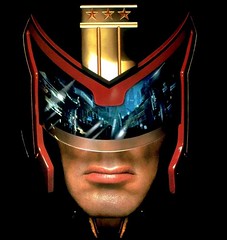skip to main |
skip to sidebar
crybaby olympics

During the 2002 Winter Olympics, a major publication had a headline that read, "Crybaby Olympics." The article highlighted the refrain of complaints launched by several competitors who felt they had been duped out of their legitimate attainment by some unscrupulous judge. I have no doubt that in any competition there is always the possibility that someone has been cheated out of winning. Any one who has ever competed knows the feeling of suspicion when medals are awarded on an inexact basis of measurement. Judging is a hazardous task but so is judging the judges.
However legitimate one's complaint might be, the fearful thing is that the winners of the award never seem to stop by the judge's desk and say, "Excuse me, but I really do not think I deserved that." Winners seldom question the validity of the judge's decision; losers often do.
Whatever else this displeasure proves, it proves two things. One, that we expect a judge to be objective and fair. But secondly, there is a more serious concern. Namely, how does a judge judge if there are no absolutes by which to do the judging? You see, it is one thing to measure how far an object has been thrown and another thing to say which was a more beautiful performance on ice. The latter demands an aesthetic measure, which is not always exact.
But you see, deep inside all of us are both of these moral realities. We affirm the need to be right and fair, and we somehow believe that even in beauty there are some misjudgments that reveal prejudice. What this tells us is that life must have absolutes. This itself reveals the fact that we are born as moral agents and when that moral agency is violated, deep inside, we cry.
The Bible makes it clear that God is a judge and He is fair. One of the most telling passages is in the book of Genesis when God is judging the cities of Sodom and Gomorrah. Abraham asks God if He is going to wipe out both the righteous and the unrighteous. God assures Abraham that He sees everything and then says this, "Shall not the judge of the earth do that which is right?"
You and I may not have been robbed of a medal in the Olympics. But we do know that when destiny-defining decisions are made, the Judge of all the earth will do right. He knows the absolutes, and He will not make a mistake. That is both comforting and daunting.
- Ravi Zacharias, "Judging the Judges", 20 Jul 2004.


No comments:
Post a Comment